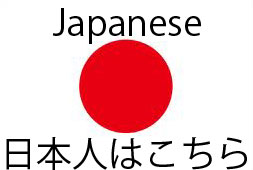The corrosion of steel-based mechanical components is said to be responsible for the loss of about 3% of annual global GDP. Cracks can appear in stainless steel components when stress or strain is combined with a corrosive environment that attacks sensitive grain boundaries. In nuclear power plants, certain grain boundaries can become sensitive during heat treatments or during fast neutron irradiation. It is important to observe how these cracks grow in detail, because they have been identified as the primary cause of several critical system failures. At the European Synchrotron Radiation Facility (ESRF), Grenoble, France, Dr. A. King and his colleagues recently revealed how growing cracks interact with the 3D crystal structure of stainless steel. The sample was a wire of 0.4 mm in diameter, and 40 keV X-rays were employed. By using diffraction contrast tomography, the research group could observe the shapes, positions, and orientations of 362 different grains with some 1600 grain boundaries without destroying the sample. They put the wire into a corrosive liquid, K2S4O6, and applied a load to cause microcracks to grow between the grains. As the cracks grew, 3D tomographic scans (of 30 minutes each) were made at intervals of between several minutes and two hours to follow the progress of the cracks. It was found that the cracks grew along the boundaries between the grains. The technique has enabled visualization of the cracks as they grow and of certain special boundaries that resist cracking. Information on this method is given in the following papers; "X-ray diffraction contrast tomography: a novel technique for three-dimensional grain mapping of polycrystals. I. Direct beam case", W. Ludwig et al., J. Appl. Crystallogr. 41, 302 (2008) and "II. The combined case", G. Johnson et al., J. Appl. Crystallogr. 41, 310 (2008). For more information on the present research, see the paper, "Observations of Intergranular Stress Corrosion Cracking in a Grain-Mapped Polycrystal", A. King et al., Science, 321, 382 - 385 (2008).
About Us
Publications (PDF)
Conference Info
Search
Categories
Monthly Archives
- September 2016 (2)
- August 2016 (1)
- December 2015 (1)
- October 2015 (1)
- August 2015 (2)
- July 2015 (2)
- June 2015 (2)
- May 2015 (3)
- April 2015 (2)
- March 2015 (2)
- February 2015 (1)
- January 2015 (2)
- December 2014 (4)
- November 2014 (3)
- October 2014 (3)
- September 2014 (1)
- August 2014 (4)
- July 2014 (4)
- June 2014 (4)
- May 2014 (3)
- April 2014 (1)
- March 2014 (1)
- February 2014 (1)
- December 2013 (2)
- October 2013 (1)
- September 2013 (1)
- August 2013 (1)
- May 2013 (1)
- March 2013 (2)
- February 2013 (7)
- January 2013 (2)
- December 2012 (7)
- November 2012 (5)
- October 2012 (5)
- September 2012 (3)
- August 2012 (1)
- July 2012 (4)
- June 2012 (5)
- May 2012 (2)
- March 2012 (1)
- February 2012 (1)
- January 2012 (1)
- December 2011 (1)
- November 2011 (8)
- October 2011 (6)
- September 2011 (5)
- August 2011 (8)
- July 2011 (3)
- June 2011 (6)
- May 2011 (9)
- April 2011 (6)
- March 2011 (8)
- February 2011 (7)
- January 2011 (4)
- December 2010 (1)
- October 2010 (5)
- September 2010 (9)
- August 2010 (3)
- July 2010 (11)
- June 2010 (3)
- May 2010 (7)
- April 2010 (4)
- March 2010 (8)
- February 2010 (3)
- January 2010 (9)
- December 2009 (1)
- November 2009 (9)
- October 2009 (3)
- September 2009 (9)
- August 2009 (4)
- July 2009 (10)
- June 2009 (1)
- May 2009 (2)
- April 2009 (5)
- March 2009 (8)
- February 2009 (3)
- January 2009 (7)
- December 2008 (3)
- November 2008 (4)
- October 2008 (7)
- September 2008 (3)
- August 2008 (7)
- July 2008 (6)
- June 2008 (7)
- May 2008 (3)
- April 2008 (7)
- March 2008 (6)
- January 2008 (6)
- December 2007 (2)
- November 2007 (5)
- October 2007 (3)
- September 2007 (4)
- August 2007 (3)
- July 2007 (4)
- June 2007 (2)
- May 2007 (6)
- April 2007 (1)
- March 2007 (4)
- February 2007 (2)
- January 2007 (6)
- December 2006 (1)
- November 2006 (9)
- October 2006 (2)
- September 2006 (3)
- August 2006 (5)
- July 2006 (3)
- June 2006 (3)
- May 2006 (3)
- March 2006 (2)
- February 2006 (5)
- January 2006 (5)
- December 2005 (1)
- November 2005 (5)
- October 2005 (1)
- September 2005 (2)
- August 2005 (6)
- July 2005 (1)
- June 2005 (2)
- May 2005 (3)
- April 2005 (3)
- March 2005 (5)
- February 2005 (4)
- January 2005 (2)
- December 2004 (4)
- November 2004 (6)
- October 2004 (1)
- September 2004 (1)





